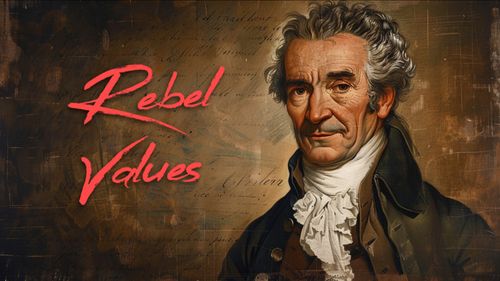The Revolutionary Spirit of Thomas Paine: Challenging Authority Then and Now
Mar 05, 2024 · 2 mins read
0
Share

Thomas Paine, a name synonymous with revolution, wielded his pen like a sword, cutting through oppression and igniting the flames of freedom with works like "Common Sense" and "The Rights of Man."
Save
Share
Born in England in 1737, Paine's journey from a corset maker to a revolutionary thinker underscores the power of ideas to transcend humble beginnings and challenge the status quo.
Save
Share
"Common Sense," published in 1776, wasn't just a pamphlet; it was a clarion call for American independence, transforming a local rebellion into a quest for liberty that resonated around the world.
Save
Share
Paine's genius lay in his ability to communicate complex ideas in clear, compelling language. He spoke to the common man, making the case for democracy and freedom in terms anyone could understand.
Save
Share
His work "The Rights of Man" was a bold defense of the French Revolution, advocating for human rights and equality at a time when such ideas were considered radical.
Save
Share
Paine was not just a theorist; he was a participant in the revolutions his writings fueled. He lived his principles, enduring imprisonment and narrowly escaping the guillotine during France's Reign of Terror.
Save
Share
Despite his contributions to the founding of modern democracies, Paine died in obscurity and controversy, his radical views on religion and his critique of established institutions having alienated many of his contemporaries.
Save
Share
Today, Paine's revolutionary spirit lives on, inspiring those who challenge tyranny and injustice. His belief in the power of the people to govern themselves is a beacon for activists and freedom fighters.
Save
Share
Paine's legacy is a testament to the enduring power of ideas. His writings remind us that words can indeed change the world, and that the pen can be mightier than the sword.
Save
Share
In an era of global unrest and the fight for human rights, Thomas Paine's call to action is as relevant now as it was over two centuries ago. He challenges us to question authority, fight for justice, and believe in the power of revolution to transform society.
Save
Share
0